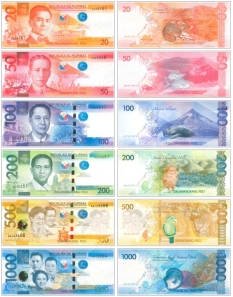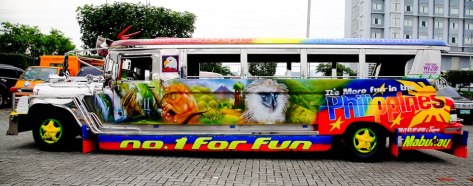TRAVELING TO THE PHILIPPINES
To start your tour, some information about the Philippines will help you familiarize with the country so that you know what to expect.
- The capital of the Philippines is Manila
- The two languages widely used are Filipino and English.
- Religion is predominantly Roman Catholic. Certain percentage of Protestant, Muslims and Buddhist
- Currency is Philippine peso (Php)
Most Filipinos speak English, quite a few don’t. With your LocalTour Guide from Travel Enthusiasts Inc., you would not have to worry about the Filipino’s way to point to a direction by using fingers, lips or head. We will accompany you in every step you take.
Here are useful phrases that are important to learn before coming to the Philippines. You may need this if you happen to meet local people especially the older ones in the countryside. Keep it handy.
Good Morning! : Magandang umaga (po)!
Good Afternoon! : Magandang hapon (po)!
Good Evening! : Magandang gabi (po)!
How are you? : Kumusta (po) kayo?
Fine, and you? : Mabuti naman (po). Kayo?
Thank you. : Maraming salamat (po).
You are welcome. : Walang anuman.
Please : Paki
Do you speak English? : Nagsasalita (po) ba kayo ng Inglis?
How much is this? : Magkano (po) ito?
I am going to the…. : Pupunta (po) ako sa….
How do I get to the…. : Paano (po) pumunta sa….?
Where is the bathroom? : Nasaan (po) ang banyo?
I am hungry. : Gutom na (po) ako.
I want to eat. : Gusto ko na (po) kumain
I don’t understand : Hindi ko (po) maintindihan
You may pronounce the Tagalog words as they are spelled. The word “po” is used only if you are speaking to an older person. Otherwise, this can be omitted.
FOLLOW DO’s and DONT’s
* Do put only a small amount of money in your coin purse. A couple of hundred pesos is enough to pay for all the snacks and small souvenirs you can buy on a day. But never leave your money/cash in your bag or in your hotel without a SAFEBOX. Though sometimes using safebox in the hotel is also risky.
* Don’t carry large amounts of cash with you. If you have to carry larger amounts, keep it very close on your body, in a place where it cannot be reached without removing your clothes. A money belt under your pants is often a good suggestion.
* In most places ATM’s are reliable and they are often guarded, however, don’t use them at late hours, and don’t allow others to look over your shoulder or see where you put your money.
* Don’t wear jewelry — chain snatchers sometimes operate on local buses and jeepneys.
* Don’t show out with your wealth. Keep cameras, cellphones, gadgets, etc. in unsuspicious looking bags, not in flashy bags. Only bring them out if you need to.
* Travel light. Don’t bring more than a single small bag that you can keep in sight. In the tropical climate you need only a few sets of light clothes, and you can have them washed at almost every hotel.
* Be cautious when approached by overly helpful people at crowded places in cities, such as airports, bus-stations and piers. However, don’t avoid getting in contact with the Filipinos, for you will miss a lot of friends =)
* Do carry a number of photocopies of important documents such as your passport and airplane tickets, so that you have the details handy in case the real ones get missing. Of course, keep them separate from your real documents.
* Don’t Accept drinks from strangers. Some people have been drugged that way, and then robbed of their possessions.


